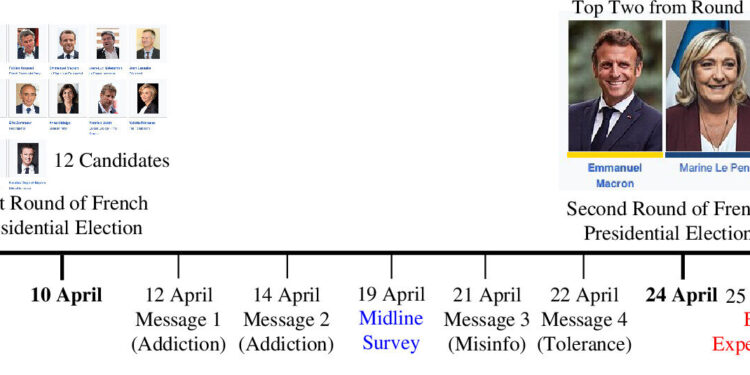Timeline of the study on Facebook deactivation during the 2022 French presidential election. Credit: Royal Society Open Science (2024). DOI: 10.1098/rsos.240280
Amid widely shared concerns that social media makes people unhappy, spreads misinformation and polarizes societies, researchers paid randomly selected participants to deactivate their Facebook accounts during an election, then compared them to a group randomly selected who continued to use Facebook.
Their study, published in the journal Royal Society Open Sciencedirectly replicated and extended previous research by sending some participants messages urging them to be more informed, more civil, and more open-minded. In the end, these information messages had little impact.
According to researchers, deactivating your Facebook social media account might slightly increase your well-being, but reduce your political knowledge.
As part of their study, 1,117 people voluntarily deactivated their Facebook accounts during the 2022 French presidential election. The team asked participants about their mood and well-being, their political knowledge and their level of polarization political and social during the election, and compared their results with those of 1,129 people who did not deactivate their accounts.
They found that people who deactivated their accounts reported slightly higher well-being but lower political knowledge. However, they found that people’s level of political and social polarization did not change despite deactivating their Facebook account.
More information:
Kevin Arceneaux et al, Facebook increases political knowledge, reduces well-being and informational processing does not help much, Royal Society Open Science (2024). DOI: 10.1098/rsos.240280
Provided by the Royal Society
Quote: Deleting your Facebook may increase your well-being but reduce your political knowledge (October 10, 2024) retrieved October 10, 2024 from
This document is subject to copyright. Except for fair use for private study or research purposes, no part may be reproduced without written permission. The content is provided for informational purposes only.



